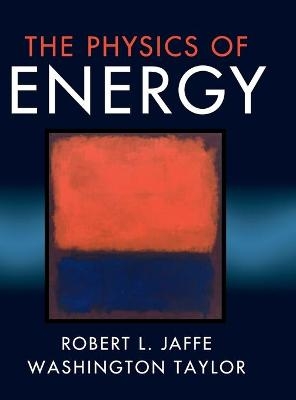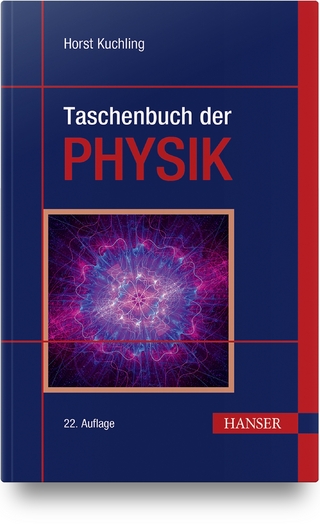
The Physics of Energy
Cambridge University Press (Verlag)
978-1-107-01665-1 (ISBN)
The Physics of Energy provides a comprehensive and systematic introduction to the scientific principles governing energy sources, uses, and systems. This definitive textbook traces the flow of energy from sources such as solar power, nuclear power, wind power, water power, and fossil fuels through its transformation in devices such as heat engines and electrical generators, to its uses including transportation, heating, cooling, and other applications. The flow of energy through the Earth's atmosphere and oceans, and systems issues including storage, electric grids, and efficiency and conservation are presented in a scientific context along with topics such as radiation from nuclear power and climate change from the use of fossil fuels. Students, scientists, engineers, energy industry professionals, and concerned citizens with some mathematical and scientific background who wish to understand energy systems and issues quantitatively will find this textbook of great interest.
Robert L. Jaffe holds the Morningstar Chair in the Department of Physics at Massachusetts Institute of Technology (MIT). He was formerly director of MIT's Center for Theoretical Physics and recently chaired the American Physical Society's Panel on Public Affairs. Jaffe is best known for his research on the quark substructure of the proton and other strongly interacting particles, on exotic states of matter, and on the quantum structure of the vacuum. He received his B.A. from Princeton and his Ph.D. from Stanford. In recognition of his contributions to teaching and course development at MIT, Jaffe has received numerous awards including a prestigious MacVicar Fellowship. Jaffe is a member of the American Academy of Arts and Sciences. Washington Taylor is a Professor of Physics at Massachusetts Institute of Technology (MIT), and is currently the Director of MIT's Center for Theoretical Physics. Taylor's research is focused on basic theoretical questions of particle physics and gravity. Taylor has made contributions to our understanding of fundamental aspects of string theory and its set of solutions, including connections to constraints on low-energy field theory and observable physics and to new results in mathematics. Taylor received his B.A. in mathematics from Stanford and his Ph.D. in physics from University of California, Berkeley. Among other honors, Taylor has been an Alfred P. Sloan Research Fellow and a Department of Energy Outstanding Junior Investigator, and has received MIT's Buechner faculty teaching prize.
Part I. Basic Energy Physics and Uses: 1. Introduction; 2. Mechanical energy; 3. Electromagnetic energy; 4. Waves and light; 5. Thermodynamics I: heat and thermal energy; 6. Heat transfer; 7. Introduction to quantum physics; 8. Thermodynamics II: entropy and temperature; 9. Energy in matter; 10. Thermal energy conversion; 11. Internal combustion engines; 12. Phase-change energy conversion; 13. Thermal power and heat extraction cycles; Part II. Energy Sources: 14. The forces of nature; 15. Quantum phenomena in energy systems; 16. An overview of nuclear power; 17. Structure, properties and decays of nuclei; 18. Nuclear energy processes: fission and fusion; 19. Nuclear fission reactors and nuclear fusion experiments; 20. Ionizing radiation; 21. Energy in the universe; 22. Solar energy: solar production and radiation; 23. Solar energy: solar radiation on Earth; 24. Solar thermal energy; 25. Photovoltaic solar cells; 26. Biological energy; 27. Ocean energy flow; 28. Wind: a highly variable resource; 29. Fluids – the basics; 30. Wind turbines; 31. Energy from moving water: hydro, wave, tidal, and marine current power; 32. Geothermal energy; 33. Fossil fuels; Part III. Energy System Issues and Externalities: 34. Energy and climate; 35. Earth's climate: past, present, and future; 36. Energy efficiency, conservation, and changing energy sources; 37. Energy storage; 38. Electricity generation and transmission.
| Erscheinungsdatum | 03.02.2018 |
|---|---|
| Zusatzinfo | 100 Halftones, color; 600 Halftones, black and white |
| Verlagsort | Cambridge |
| Sprache | englisch |
| Maße | 225 x 283 mm |
| Gewicht | 2660 g |
| Themenwelt | Naturwissenschaften ► Physik / Astronomie |
| ISBN-10 | 1-107-01665-7 / 1107016657 |
| ISBN-13 | 978-1-107-01665-1 / 9781107016651 |
| Zustand | Neuware |
| Haben Sie eine Frage zum Produkt? |
aus dem Bereich


